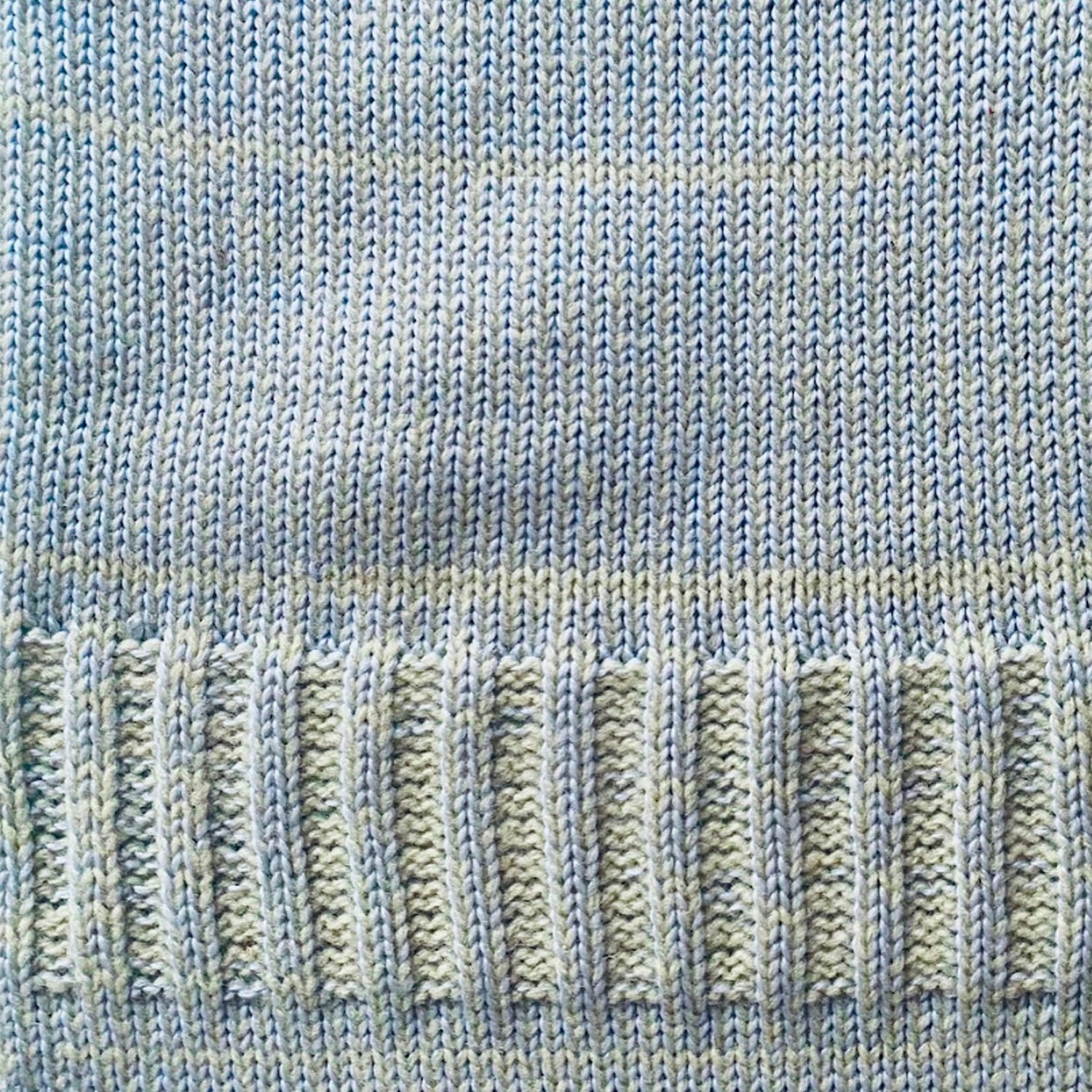
WE ARE A CREATIVE DUO BASED IN NICE, FRANCE
We take inspiration in our region, its handcrafts, culture and clichés. Dédés mainly talks about handmade and good intention. The creative process begins with selecting yarns and materials considering their impact. Each material is chosen considering the way it’s made and where, the closer the better. We will often choose to make beads or knits inhouse if we don’t find it close enough. Our goal is to create ultra clean designer pieces, avoiding dangerous components for your body and for the environment, and respect every people we are working with. This is possible thanks to certifications and their engagement, tracking the origins of our material, and locally-made pieces.
THE FIBERS WE USE

French merino wool
Made from French merino sheep's fleece, soft and without any finishing. Made locally, every step of confection is made in France except the yarn, wich is spun in Italy.
South of France wool
The most local wool we could find, it allows us to say some of our garments are 100% made locally, from sheep to garment. It's a bit more rustic but it's really warm and has a unique look.
French linen
Our Linen is 100% made in France. This natural fiber doesn't need much water to grow and produce.
Our spinner is one of the last wool spinning and dyeing factories still in operation in France.
The EPV Label distinguishes companies with know-hows of excellence, recognized as rare and precious.
Recycled cotton
We use recycled cotton to avoid waste of a precious natural ressource.
Conventional cotton production consumes way too much water and pesticides, harmfull for humans and the environment.
All our recycled cotton is GRS certified wich means:
- At least 20% recycled content in the product (our cotton yarn contains 60% recycled cotton)
-Traceability
-Stakeholder engagement
-Durably treated products
Organic cotton
Our organic cotton is from Turkey, closest producer to Europe. Spun and knitted in Portugal, it's a great step towards locally made fashion, not perfect yet, but a great affordable effort.
All our organic cottons are GOTS certified, wich means:
- 95% of organic cotton content
- Control over carcinogenics and toxic finishes
- A water, energy consumption & waste management program
Recycled synthetics
Q-NOVA®
Q-NOVA® is a recycled nylon fiber
In addition to limiting the production of waste, Q-NOVA® uses a local mechanical regeneration process that does not involve the use of additional chemical materials. In addition, this material reduces the amount of discarded nylon that would be incinerated or take decades to degrade, because more than 50% of Q-NOVA® fiber comes from recycled materials.
Q-NOVA® fiber is certified and traced by the Global Recycle Standard system, the European ECOLABEL EU system and by the Œkotex-standard 100 Class I system.
Roica
Roica Eco-Smart yarns are yarns made from 58% recycled materials, certified by the Textile Exchange and meeting the Global Recycled Standard
These two materials make it possible to use a tulle with strong technical qualities but also to limit the production of waste, and dependence on the oil industry.
That said, just like virgin nylon and classic elastane, this eco-responsible alternative is responsible for plastic microparticles released especially during washing. This unfiltered plastic is harmful to the marine ecosystem and generates a lot of pollution. To avoid this, the best solution is to place the garment in question in a laundry bag.
Upcycled plastics
It is from scraps of fabric and polyester thread that we create our beads. We melt the different scraps to create this marbled effect.
Polyester is a synthetic fiber derived from petroleum. It is found a lot in sportswear, swimwear...
Petroleum-derived products, such as polyester, are very difficult to degrade in the environment. It is therefore necessary to avoid throwing them away, and to try to extend their life as much as possible.
This is why we recycle fabric scraps for some of our jewelry
On the one hand, the unnecessary production of additional polyester, the use of natural resources and the pollution that goes with it are limited.
On the other hand, we limit the waste related to polyester, which releases plastic microparticles as it degrades, and pollutes the soil and waterways.
Our jewelry will be good for the environment as long as you love it for a long time.
Lyocell
Lyocell is an eco-friendly fiber created from eucalyptus, bamboo or hardwood pulp
The cellulose (protein naturally present in wood) is extracted from it to dissolve it in a non-toxic solvent which will be recovered at 99.77%.
Lyocell is therefore produced in a quasi-closed loop circuit where the materials are constantly recycled, purified and reused.
The wood pulp used for the production of lyocell comes from responsibly managed forests.
The pine, eucalyptus and bamboo forests are certified sustainable and have a low environmental impact.
Lyocell is certified biodegradable and compostable under industrial, domestic, land and sea conditions, so it can fully return to nature.
Lyocell is antibacterial, super soft, has better moisture absorption than cotton and natural breathability. It is perfect for sensitive skin

OUR WHOLE CREATIVE PROCESS REVOLVES AROUND HANDMADE CRAFTS
We want to create a local craftmanship exception, that’s why we work with 3 talented local crafters:
Aline, costume designer and pattern maker, she’s an expert in stretchy materials and clothing made to move.
Camille knits our finest materials, she works on a mechanical knitting machine and allows us to create second skin knitted garments.
Isabelle revalues the wool sector in our region, she supplies us in local wools and knits, allowing us to get a super local sourcing, from fiber to garment.

OUT OF THE BOX
All those elements allow us to get more and more creative, to talk about our French Riviera in different ways, push handmade know-hows out of the box, with less and less impact .
